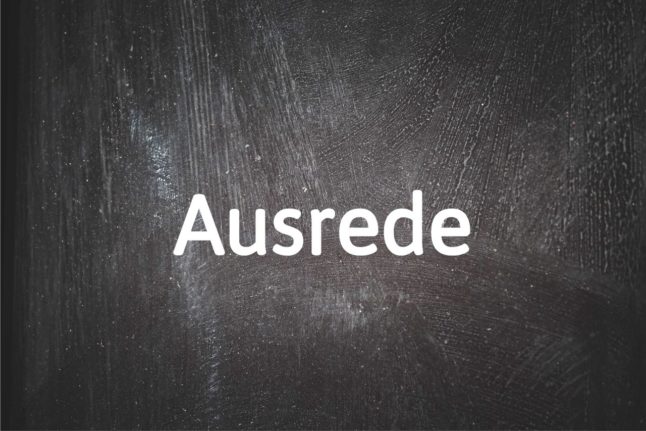This little German word can come in handy in a variety of situations.
Die Ausrede, which sounds like this, means “excuse”. It consists of the verb reden which means “to talk” or “to speak” and the prefix aus which translates as “out”, “off” or “from”.
So, a good way to remember the word is to think of it as a tool you use for talking yourself out of something.
One thing to bear in mind, however, is that in German, the word Ausrede has a slightly negative connotation and can be used to hint that the reason given is fabricated.
So, if you want to tell your boss that you have a good reason for why you can’t come to work, it’s better to say you have eine Entschuldigung (also meaning excuse) instead.
Another thing to watch out for is trying to use the verb ausreden in the same way as the English “to excuse”. In German, the verb ausreden actually means to finish speaking, for example: ich lasse ihn ausreden means “I let him finish speaking”.
How to use it:
Er hat nach einer Ausrede gesucht.
He was looking for an excuse.
Diesmal habe ich keine Ausrede.
This time I have no excuse.
Besser keine Ausrede als eine schlechte.
Better to have no excuse than a bad one.



 Please whitelist us to continue reading.
Please whitelist us to continue reading.
Member comments